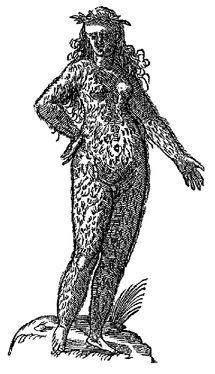Mirrors (3 page)
Authors: Eduardo Galeano

His devilish tricks erase borders, join what the gods divided. Thanks to his clever deeds the sun turns black and the night burns bright. From the pores of men sprout women and women sweat men. The dying are born, the born are dying. For everything ever created or yet to be created, backward and forward get so confused you can no longer tell boss from bossed or up from down.
Later rather than sooner, divine order reestablishes its hierarchies and geographies, and everything and everyone gets put in its place. But sooner rather than later, madness reappears.
Then the gods lament that the world is such a difficult place.
CAVES

Stalactites hang from the ceiling. Stalagmites grow from the floor. All are fragile crystals, born from the sweat of rocks in the depths of caves etched into the mountains by water and time.
Stalactites and stalagmites spend thousands of years reaching down or reaching up, drop by drop, searching for each other in the darkness.
It takes some of them a million years to touch.
They are in no hurry.
ORIGIN OF FIRE

In school they taught me that way back in caveman times we discovered fire by rubbing stones or sticks together.
I’ve been trying ever since. I never got even a tiny spark.
My personal failure has not kept me from appreciating the favors fire did for us. It defended us from the cold and from threatening beasts. It cooked our food, lit up the night, and invited us to sit, together, at its side.
ORIGIN OF BEAUTY

There they are, painted on the walls and ceilings of caves.
Bison, elk, bears, horses, eagles, women, men, these figures are ageless. They were born thousands upon thousands of years ago, but they are born anew every time someone looks at them.
How could our ancestor of long ago paint so delicately? How could a brute who fought wild beasts with his bare hands create images so filled with grace? How did he manage to draw those flying lines that break free of the stone and take to the air? How could he? . . .
Or was it she?

SAHARA’S GREENERY

In Tassili and elsewhere in the Sahara, cave paintings offer stylized images from six thousand years ago of cows, bulls, antelope, giraffes, rhinoceroses, elephants. . . .
Were those animals simply imagined? If not, did the inhabitants of the desert drink sand? And what did they eat? Stones?
Art tells us the desert was no desert. Its lakes resembled seas and its valleys provided plenty of pasture for the animals that would later have to migrate south in search of the lost verdure.
HOW COULD WE?

To be mouth or mouthful, hunter or hunted. That was the question.
We deserved scorn, or at most pity. In the hostile wilderness no one respected us, no one feared us. We were the most vulnerable beasts in the animal kingdom, terrified of night and the jungle, useless as youngsters, not much better as adults, without claws or fangs or nimble feet or keen sense of smell.
Our early history is lost in mist. It seems all we ever did was break rocks and beat each other with clubs.
But one might well ask: Weren’t we able to survive, when survival was all but impossible, because we learned to share our food and band together for defense? Would today’s me-first, do-your-own-thing civilization have lasted more than a moment?
AGES

It happens to us before birth. In our bodies as they begin to take form, something like fins appear and also a tail of sorts. These appendages don’t last; they barely show their faces before they fall off.
Do these ephemeral apparitions tell us we once were fish and once were monkeys? Fish who set out to conquer dry land? Monkeys who abandoned the jungle or who were abandoned by it?
And does the fear we feel in childhood, scared of anything, of everything, tell us we once were afraid of being eaten? Does our fear of the dark and of the anguish of solitude echo that primeval vulnerability?
Now that we’ve grown up a little, we who were fearful strike fear. The hunted is the hunter, the mouthful is now the mouth. Monsters that yesterday harried us are today our prisoners. They inhabit our zoos, adorn our flags, and embellish our anthems.
COUSINS

Ham, the conquistador of outer space, was captured in Africa.
He became the first chimpanzee to travel far beyond the world, the first chimponaut. They put him in the space capsule
Mercury,
hooked him up with more wires than a telephone switchboard, and blasted him off.
He came back safe and sound, and the record of his bodily functions demonstrated that humans too could survive a voyage into space.
Ham was on the cover of
Life
. And he spent the rest of his own caged in a zoo.
GRANDPARENTS

For many peoples of black Africa, ancestors are the spirits that live in the tree beside your house or in the cow grazing in the field. The great-grandfather of your great-great-grandfather is now that stream snaking down the mountainside. Your ancestor could also be any spirit that decides to accompany you on your voyage through the world, even if he or she was never a relative or an acquaintance.
The family has no borders, explains Soboufu Somé of the Dagara people: “Our children have many mothers and many fathers. As many as they wish.”
